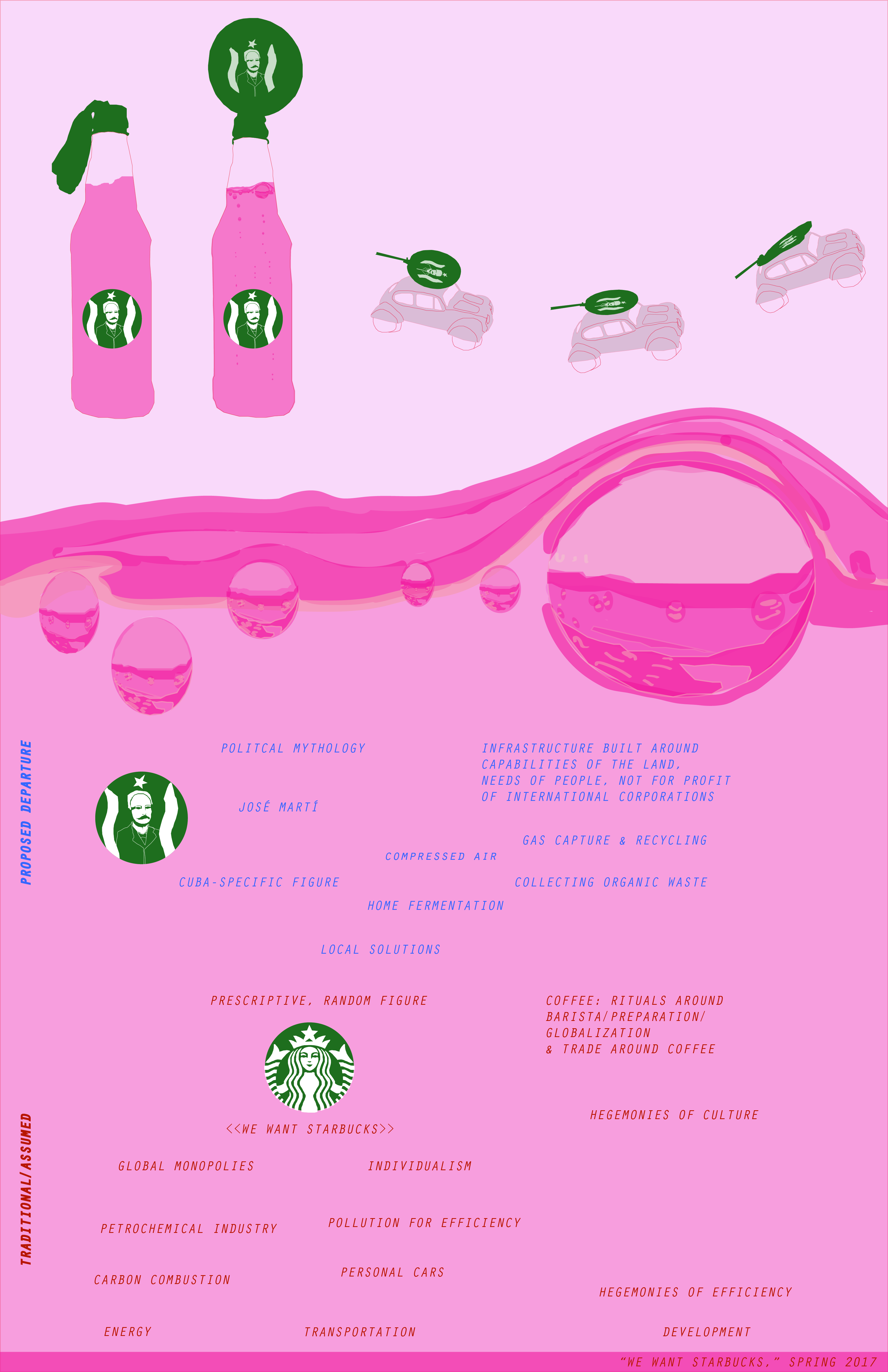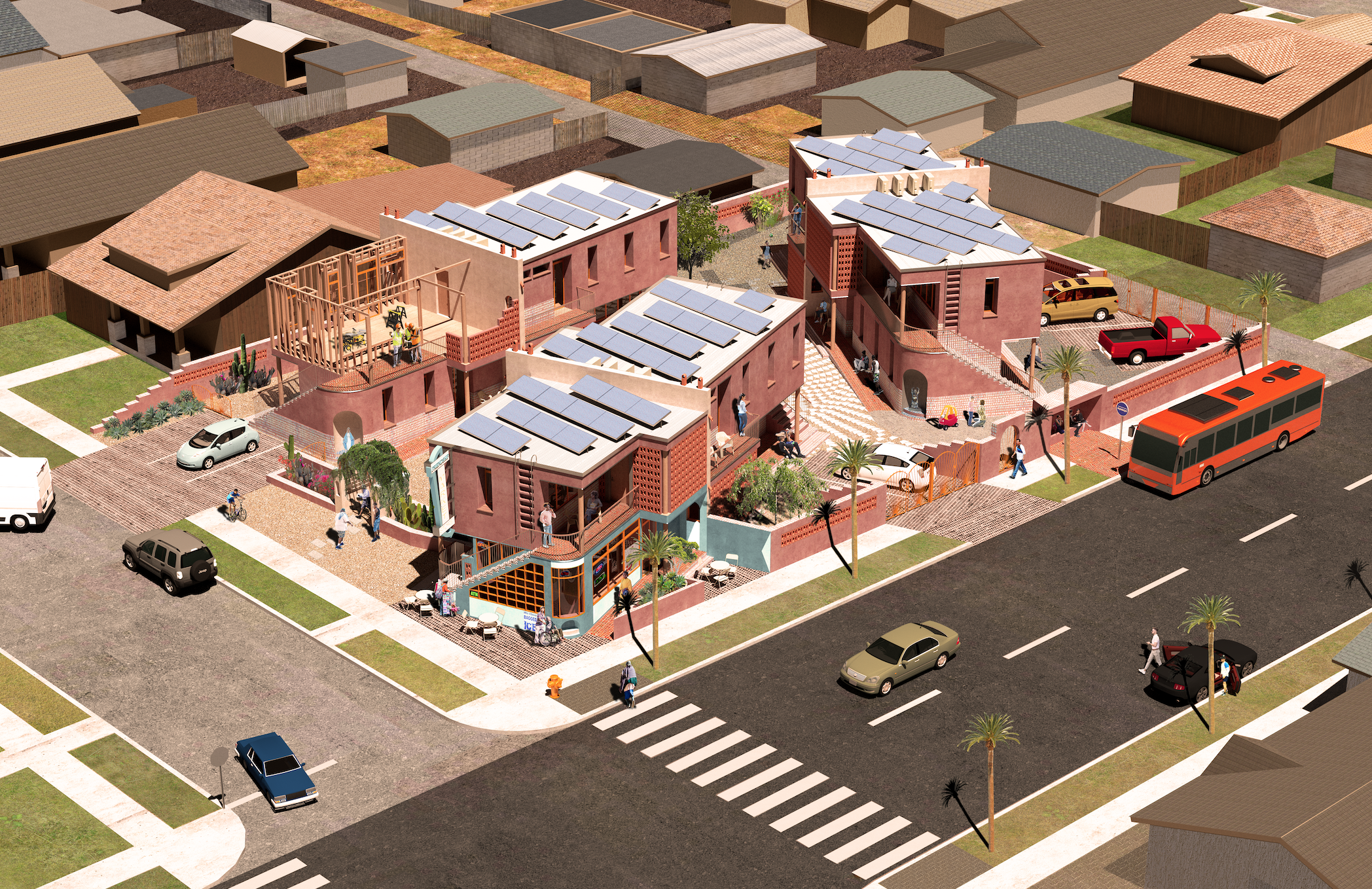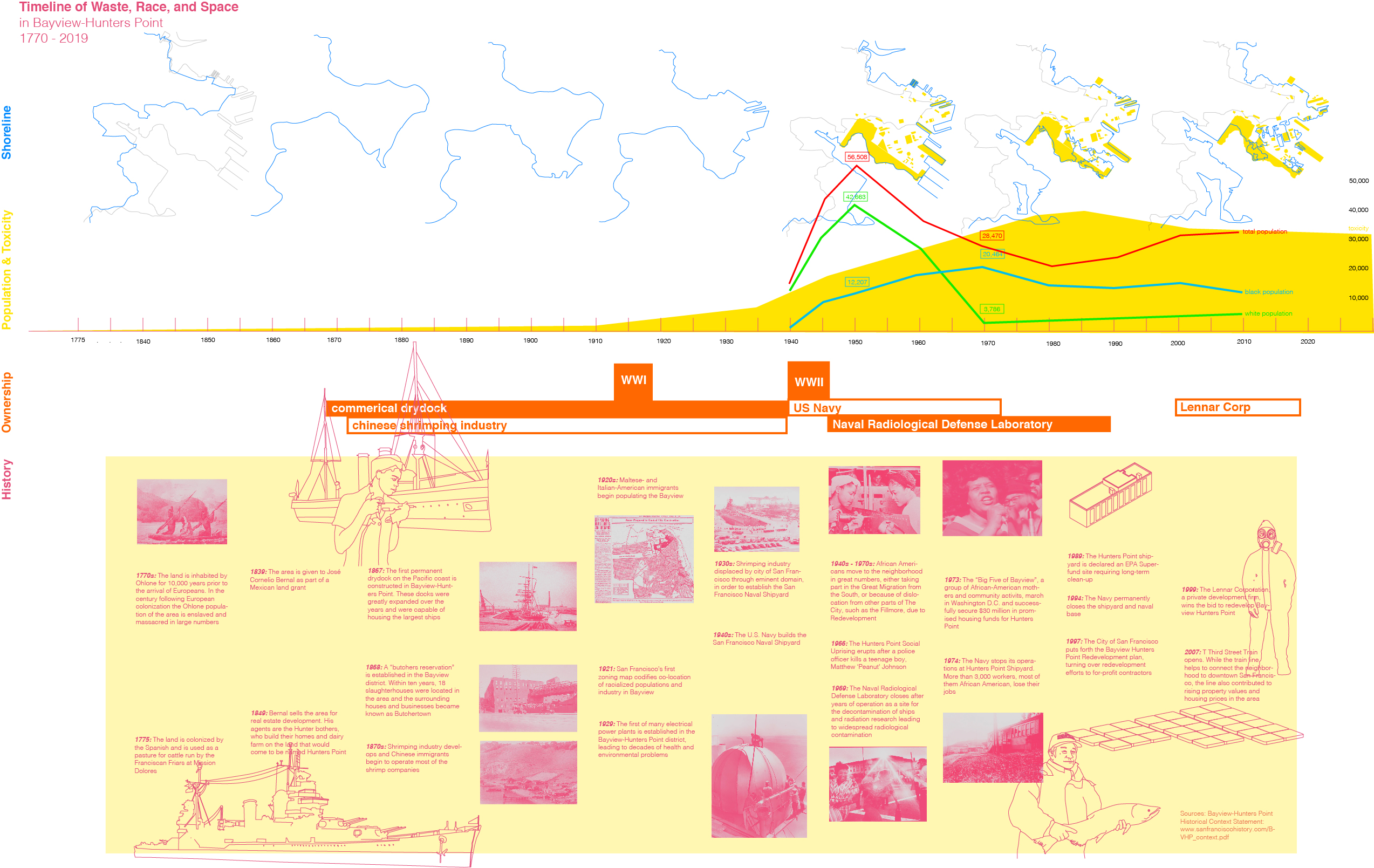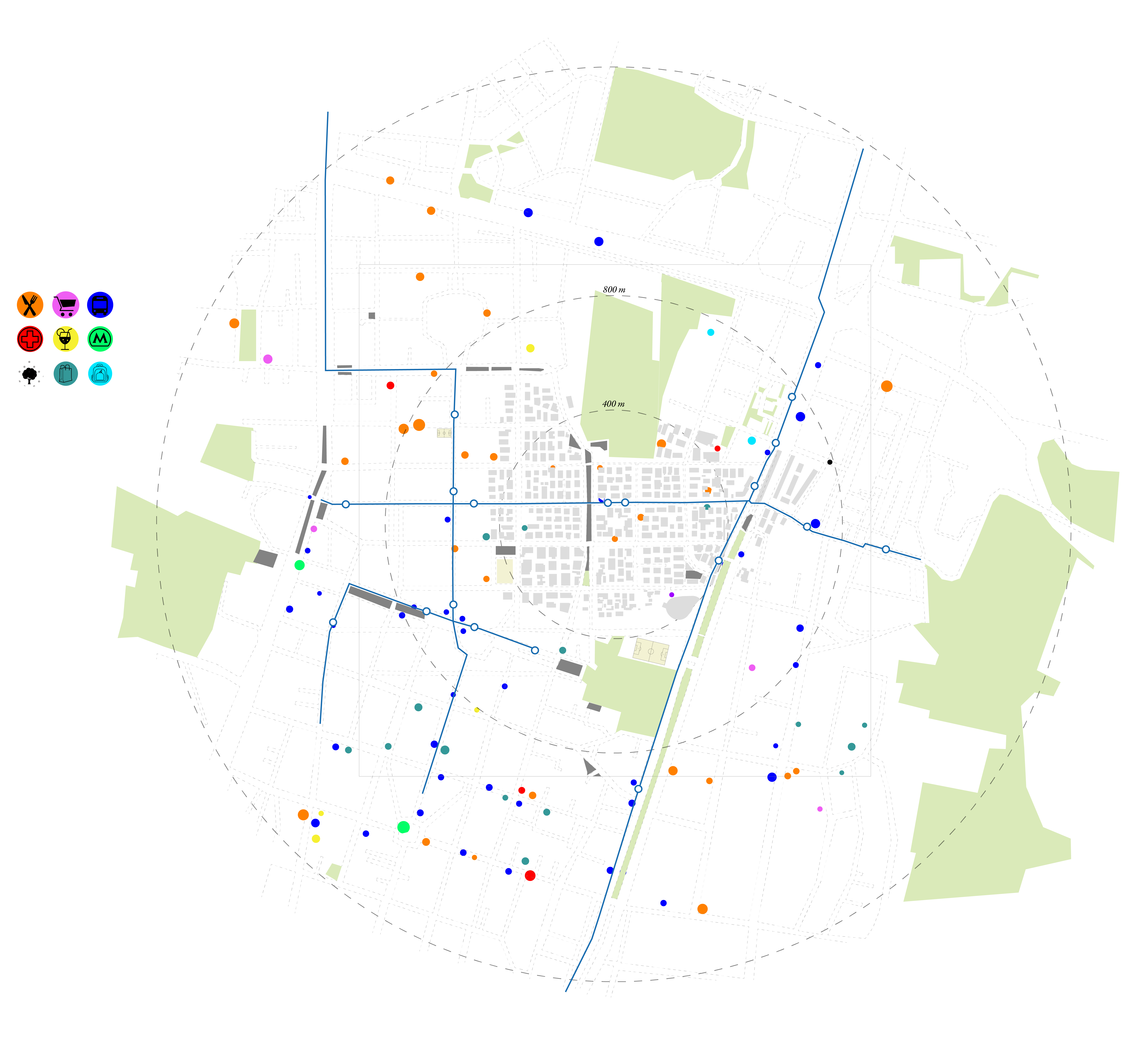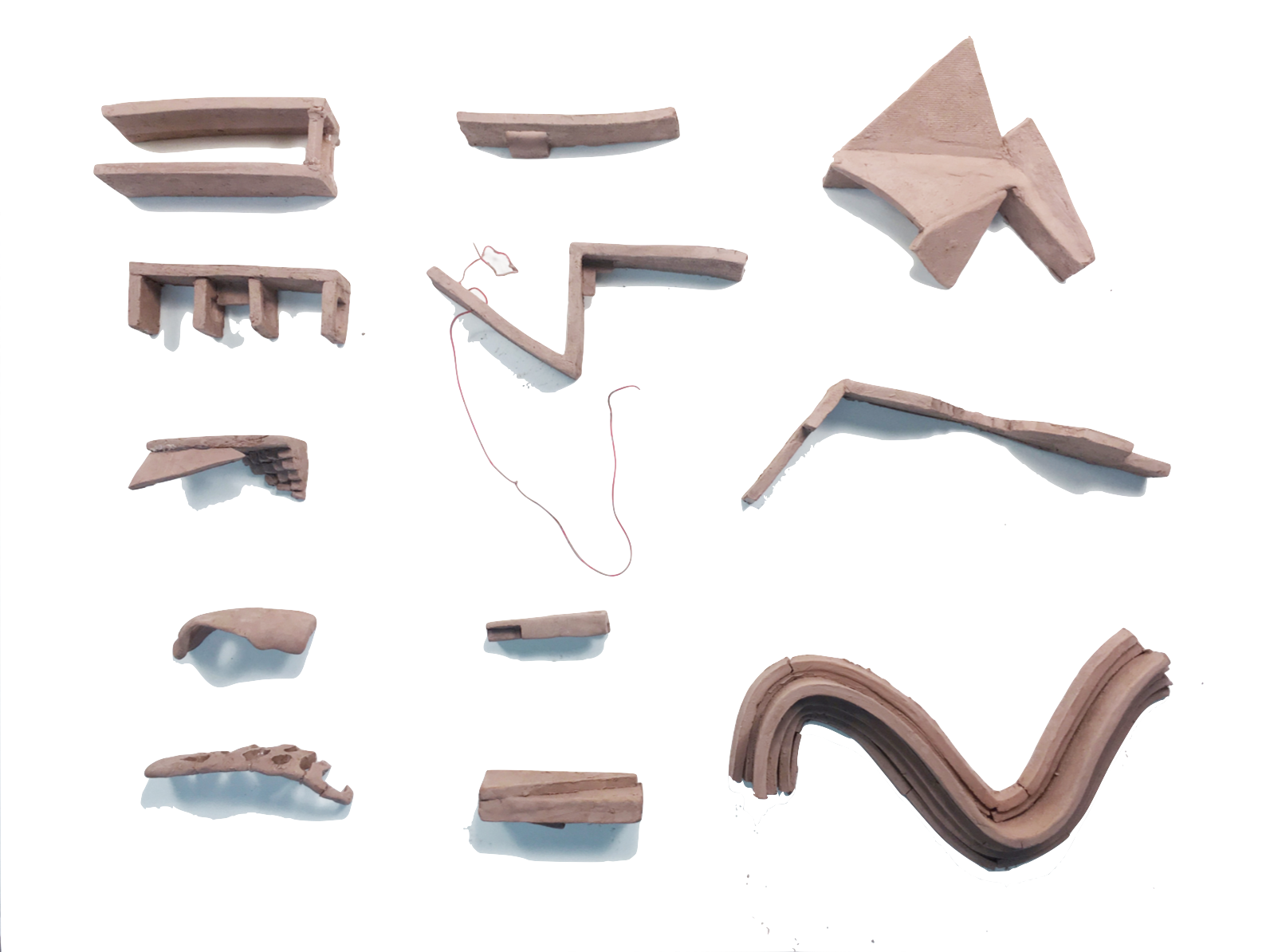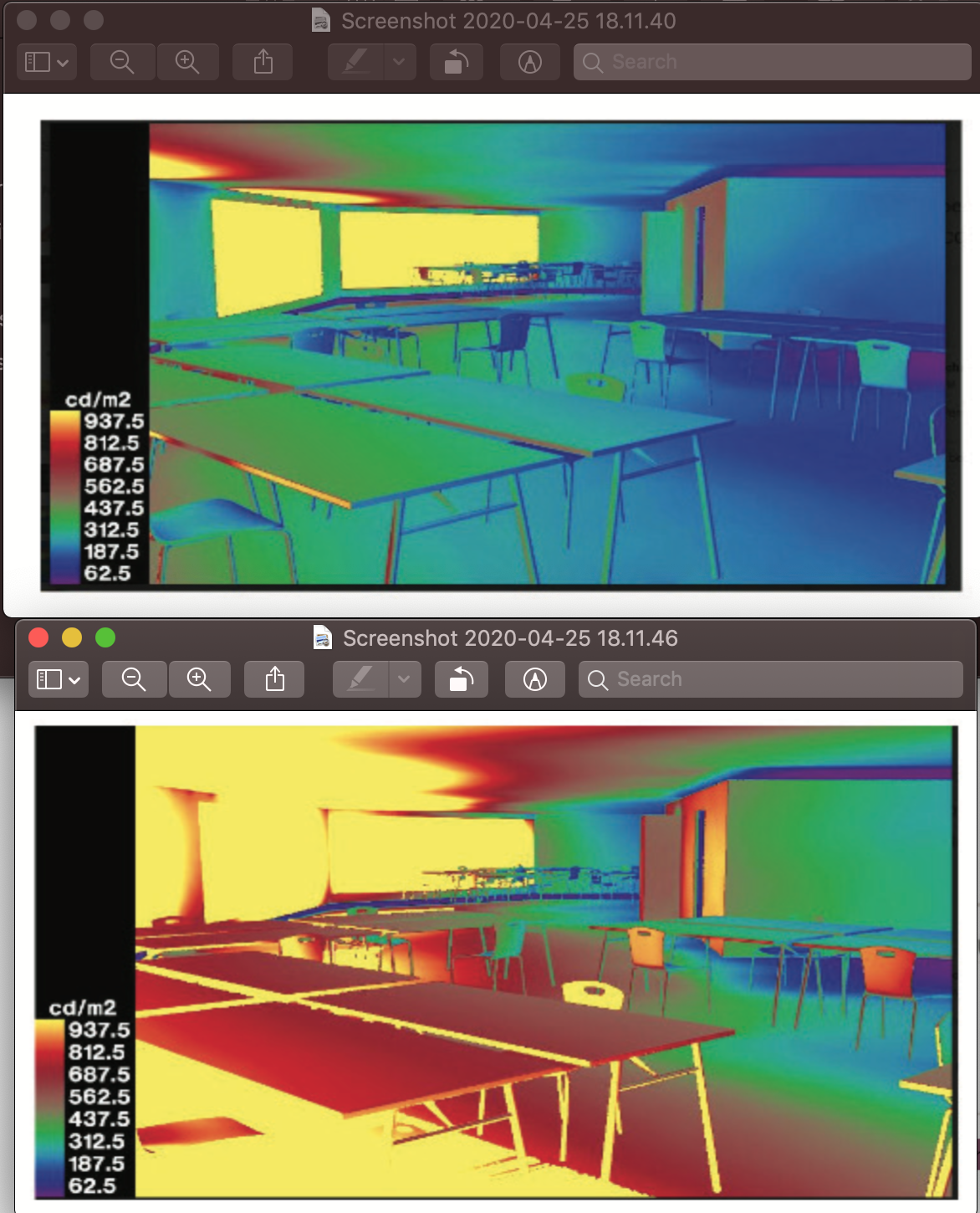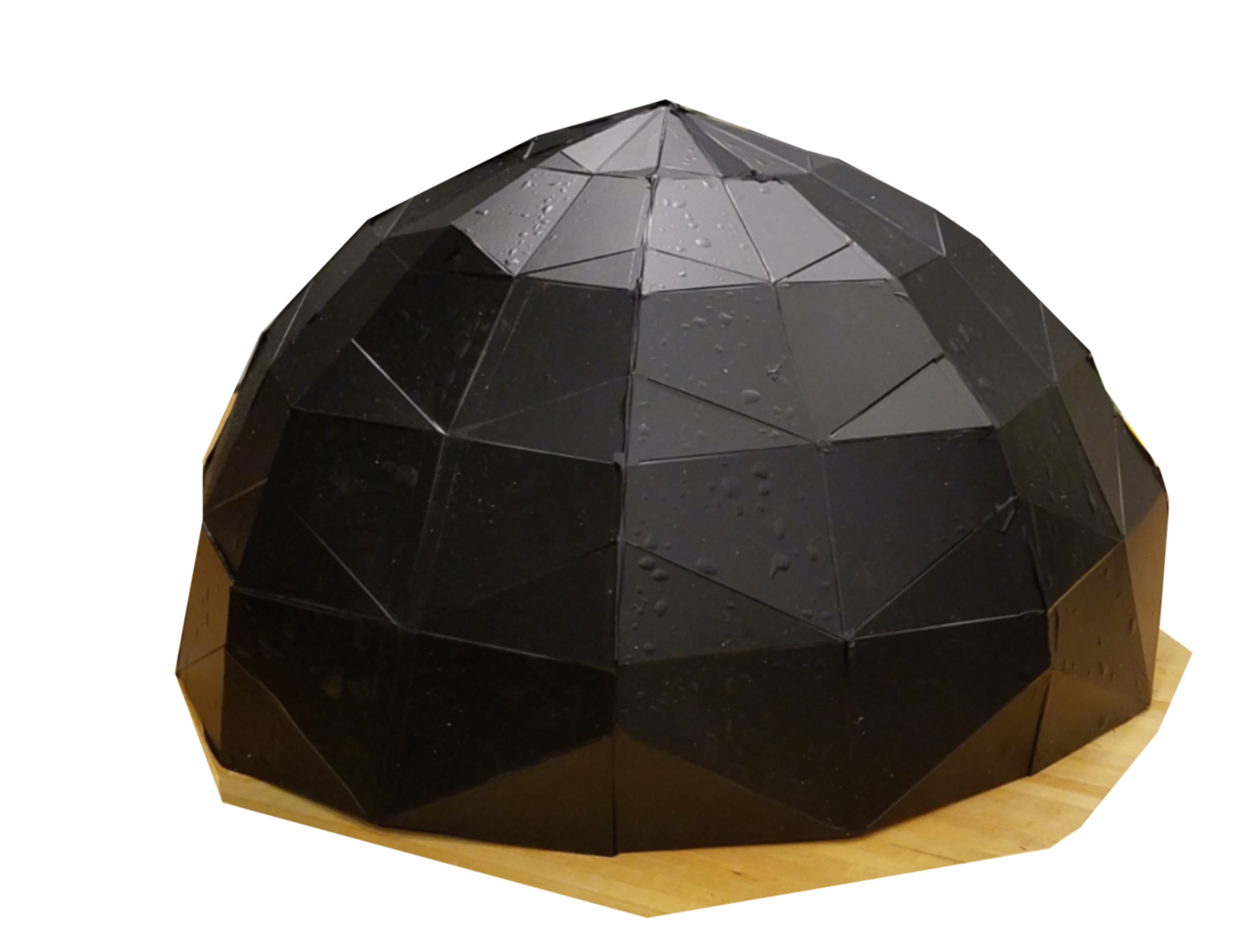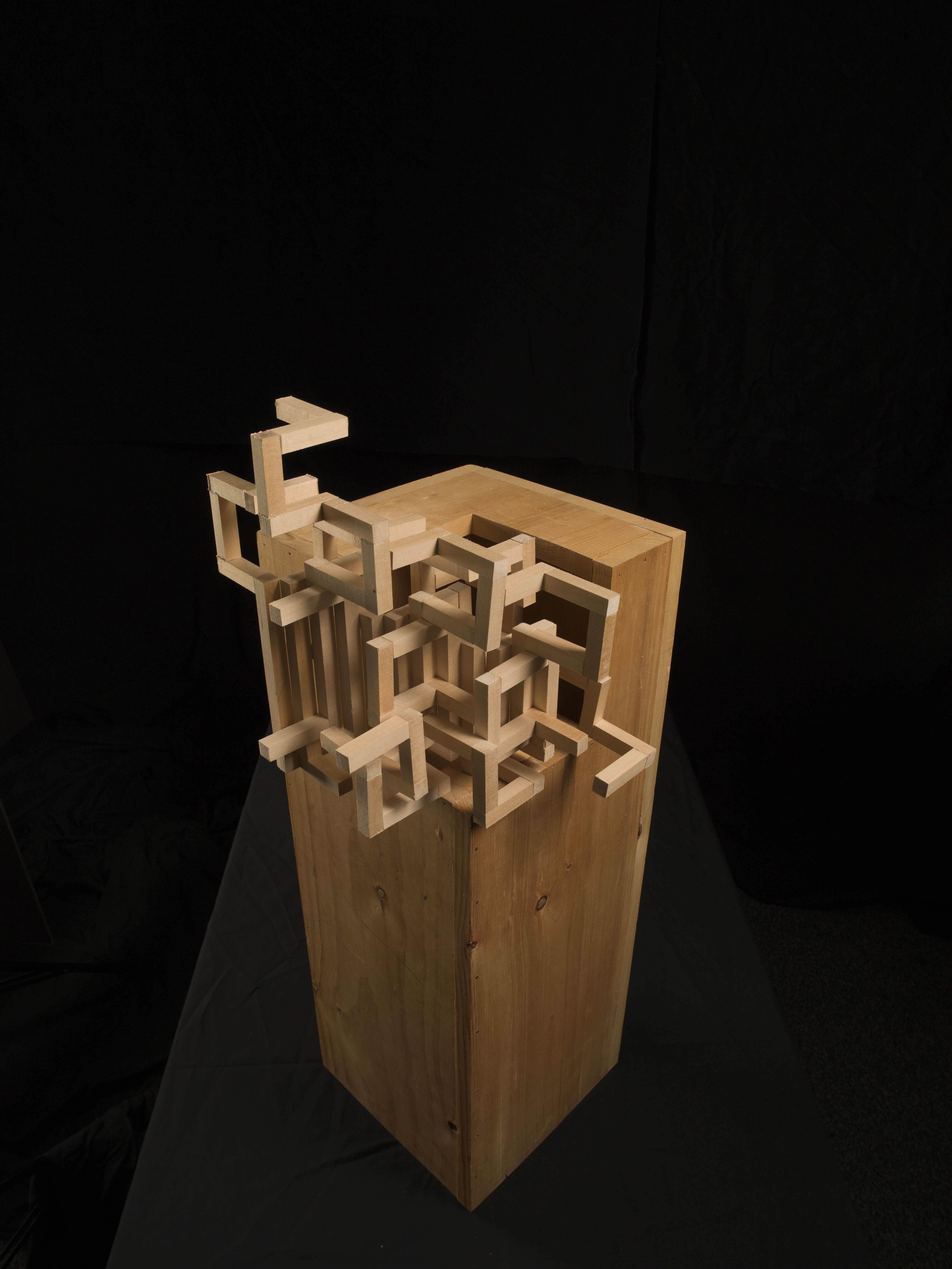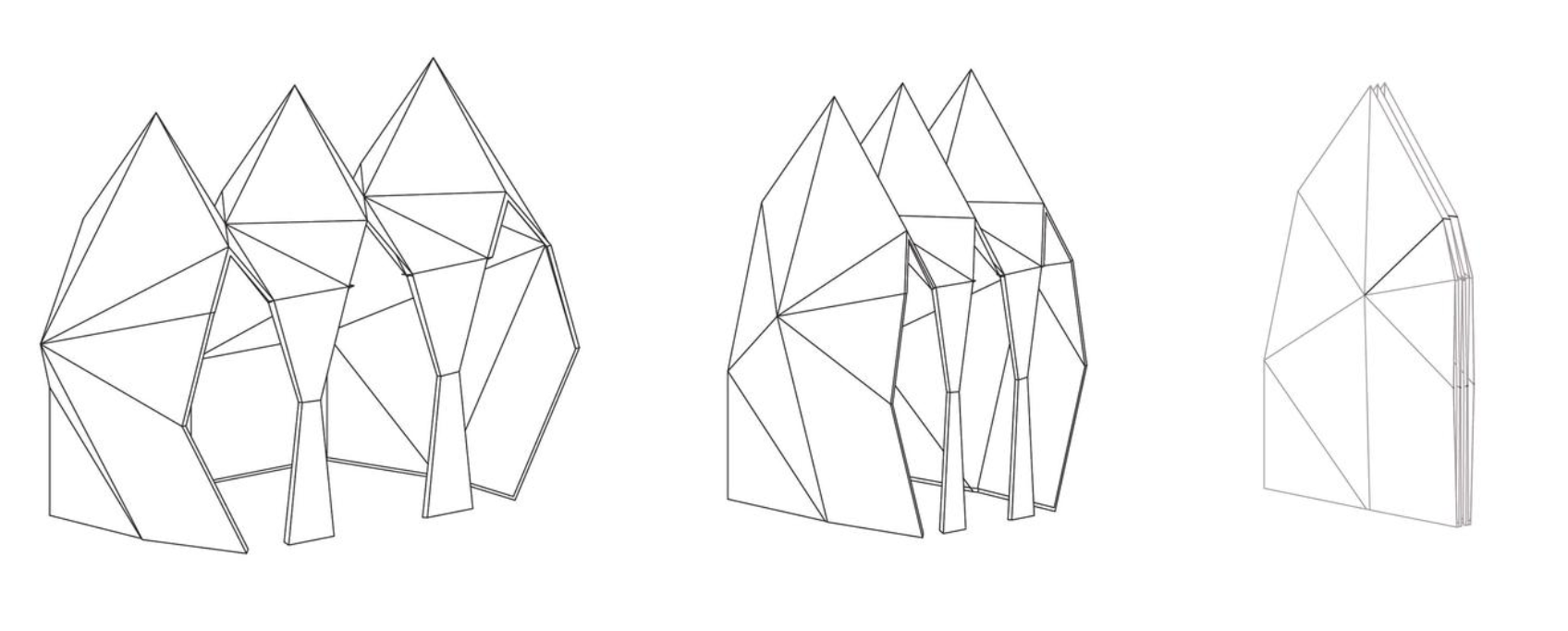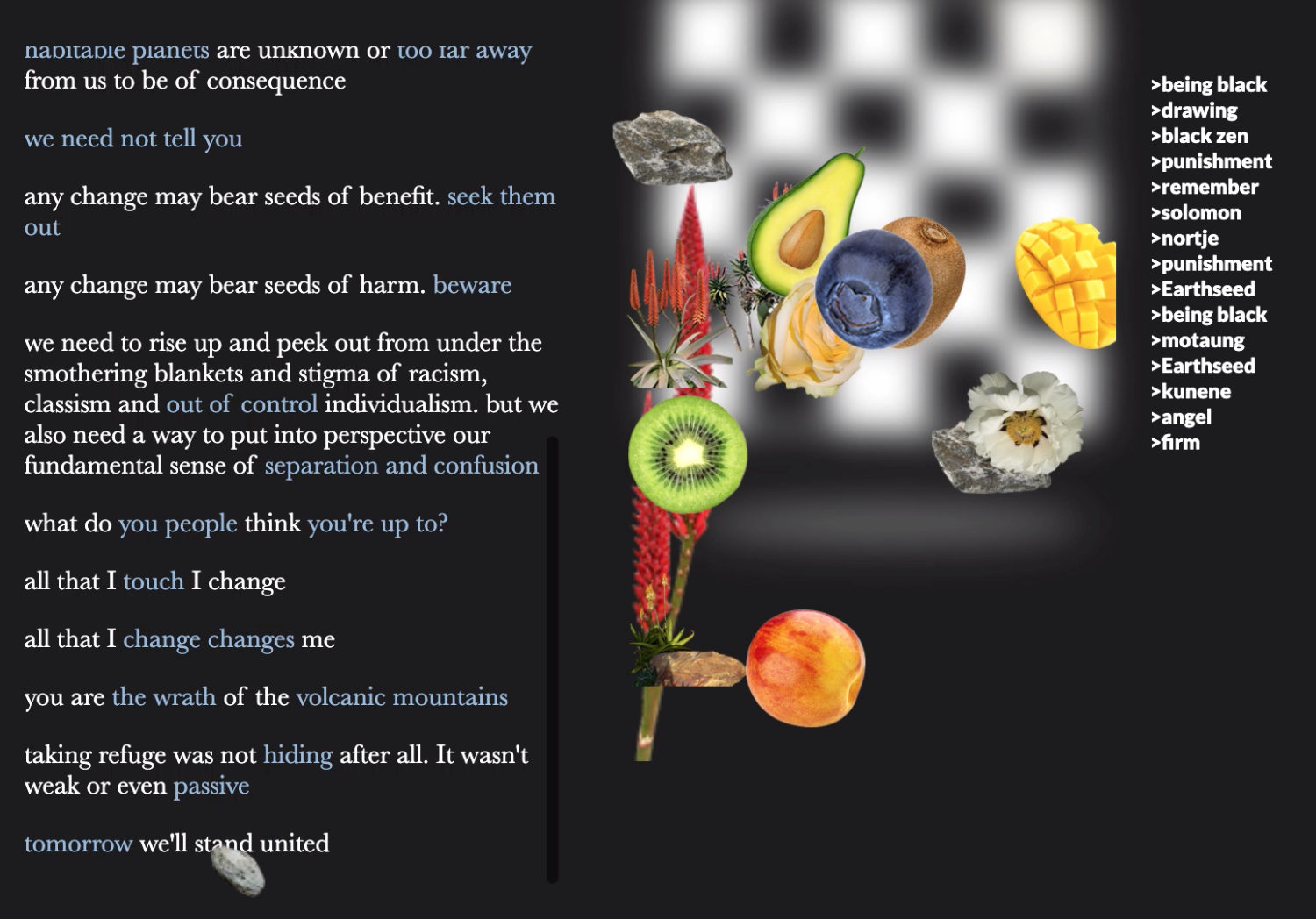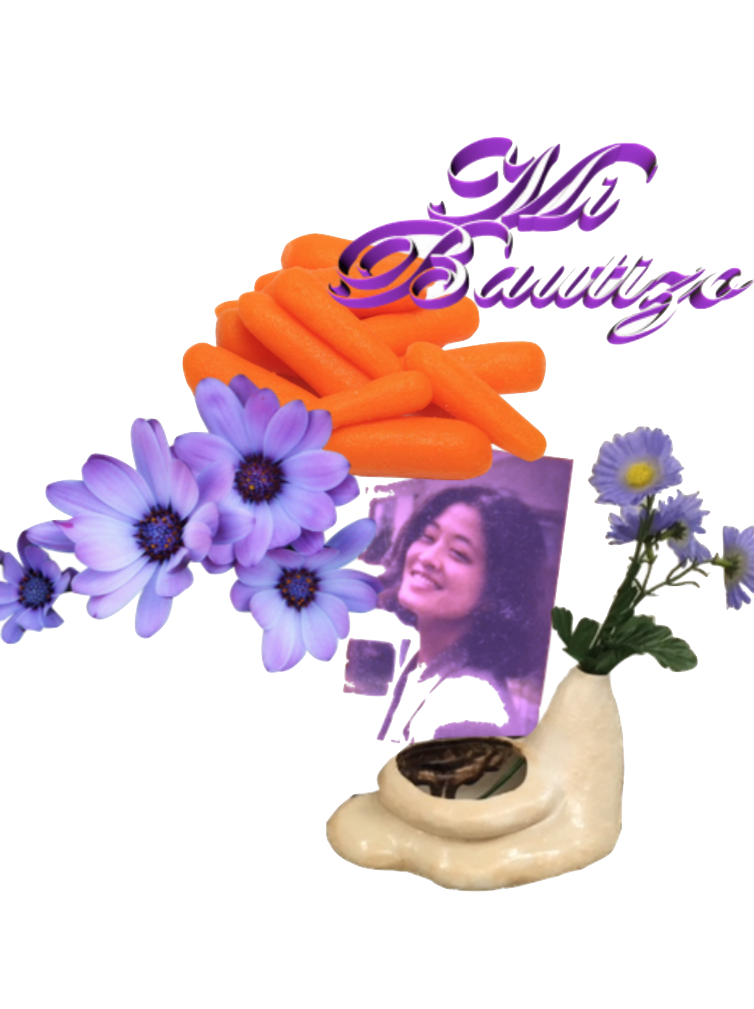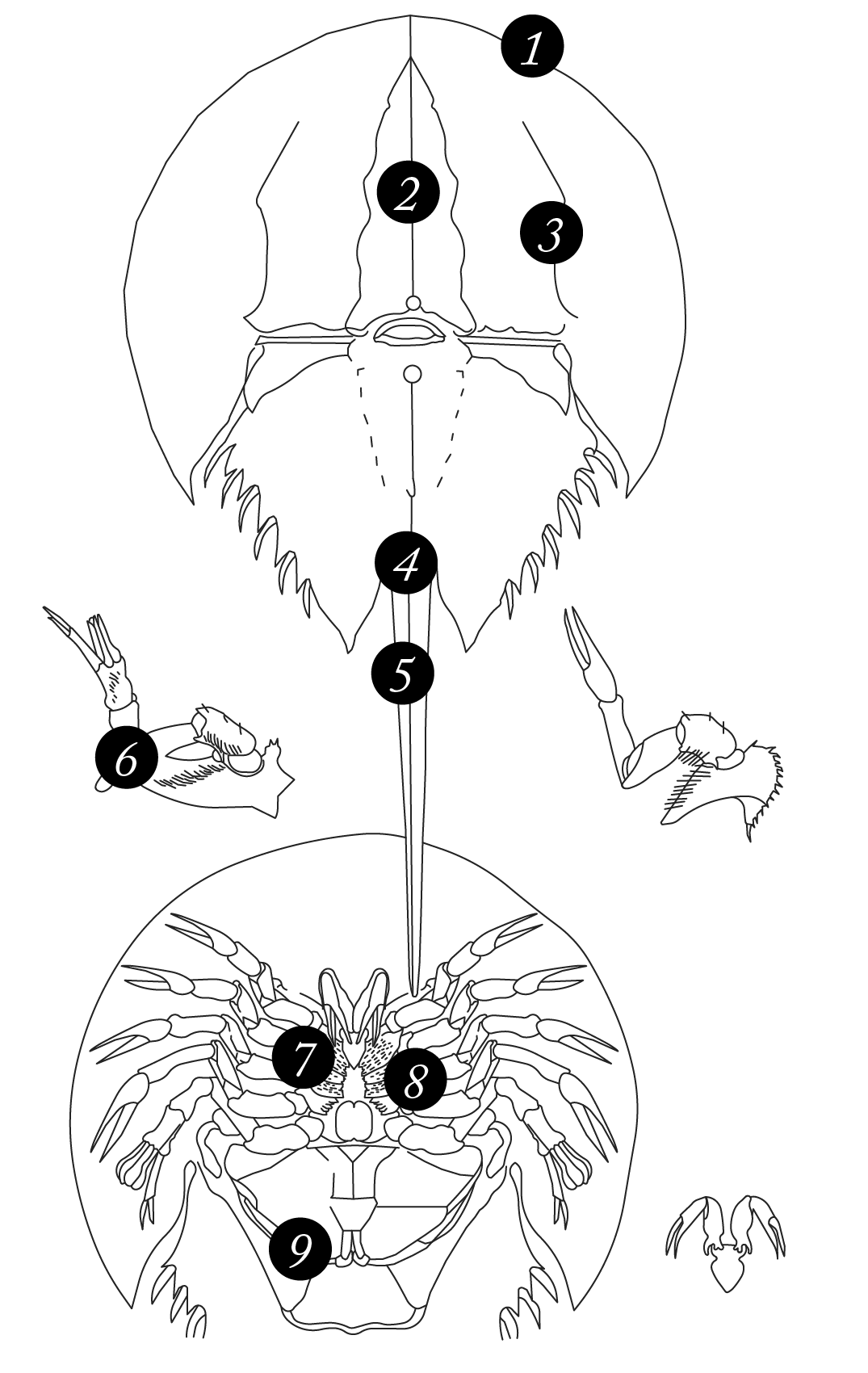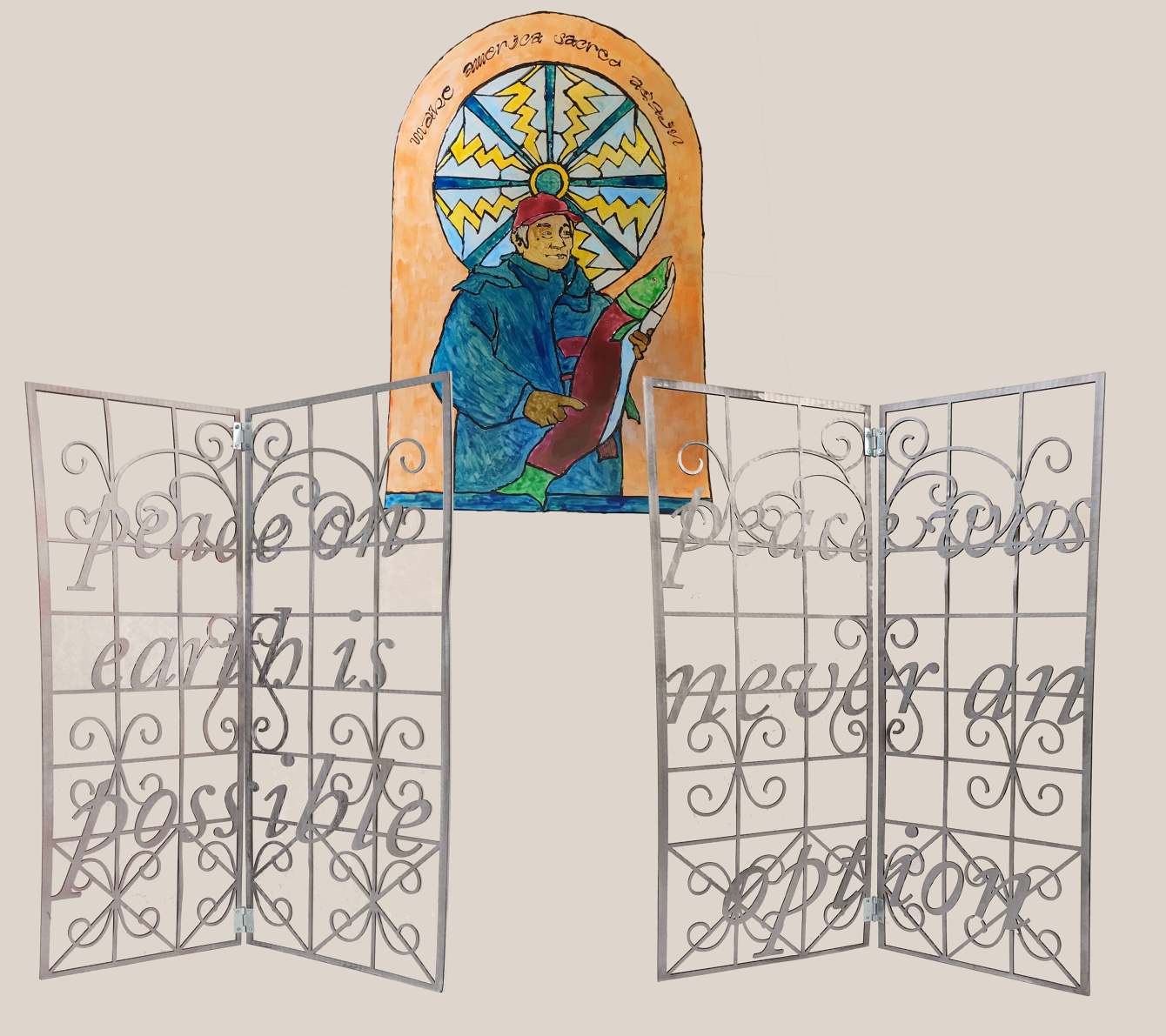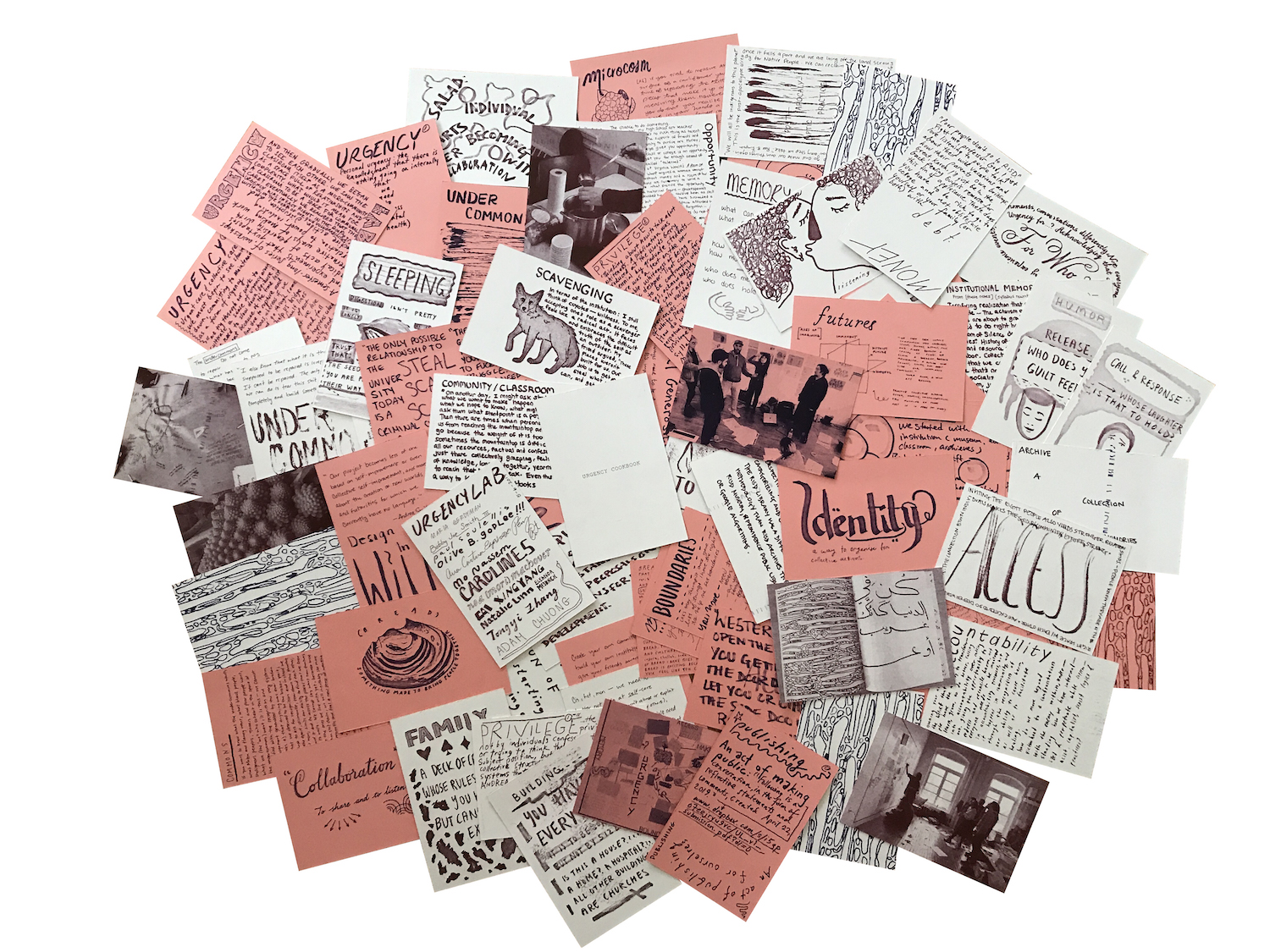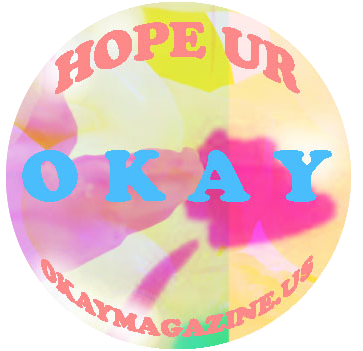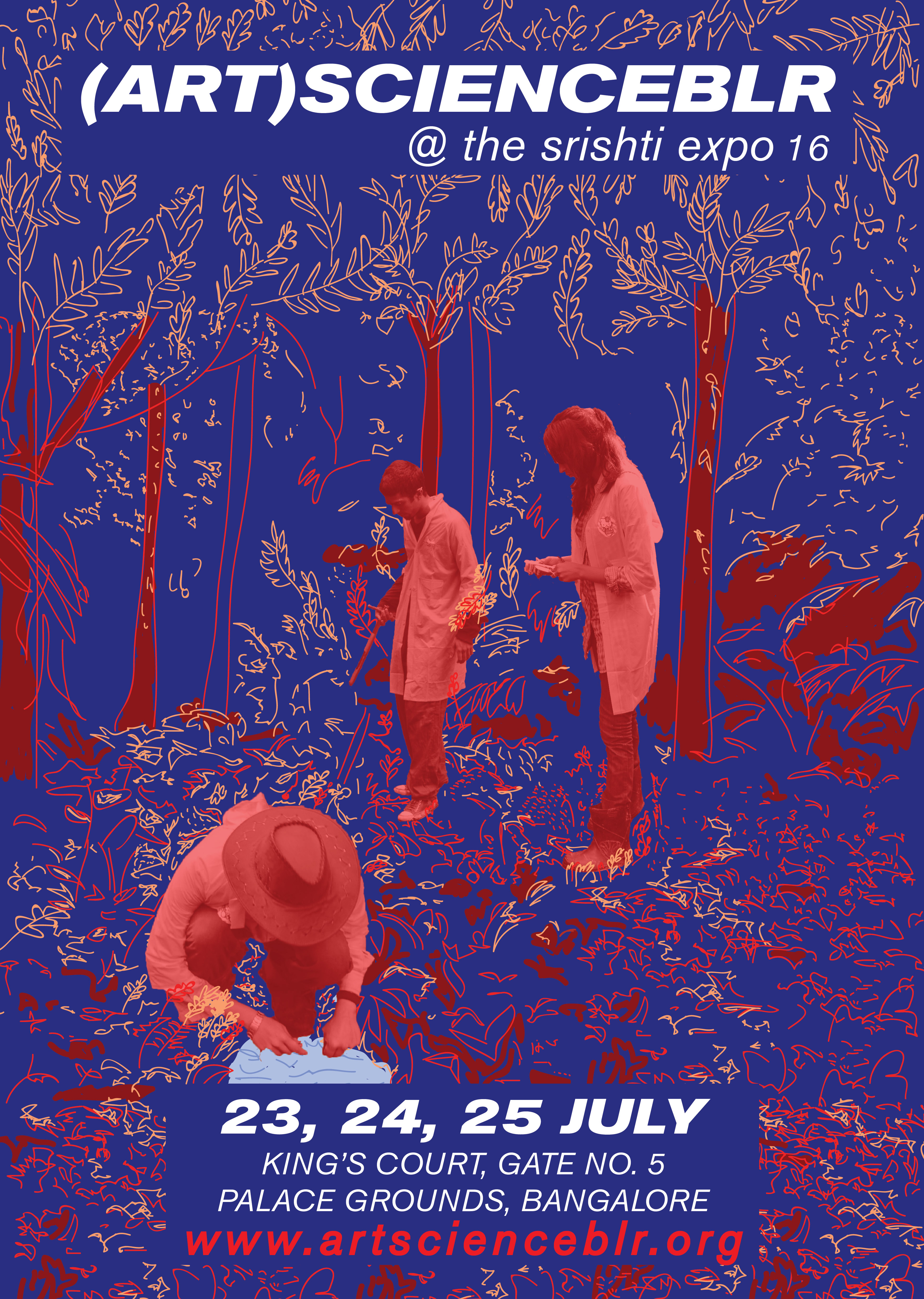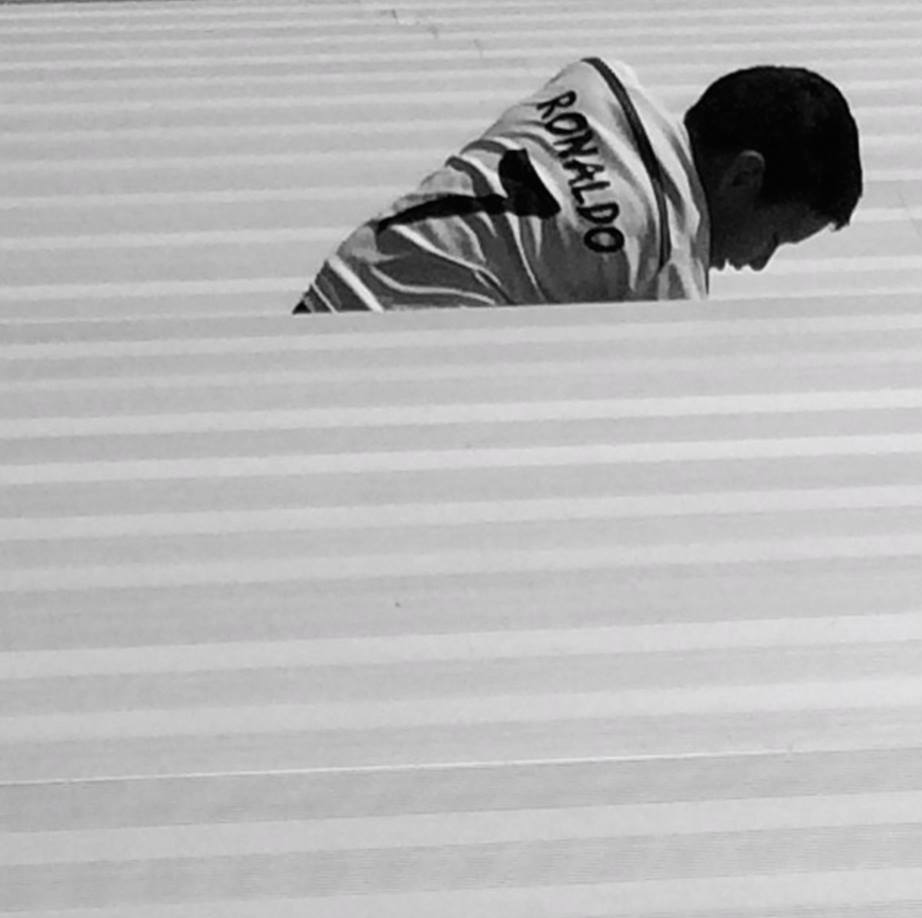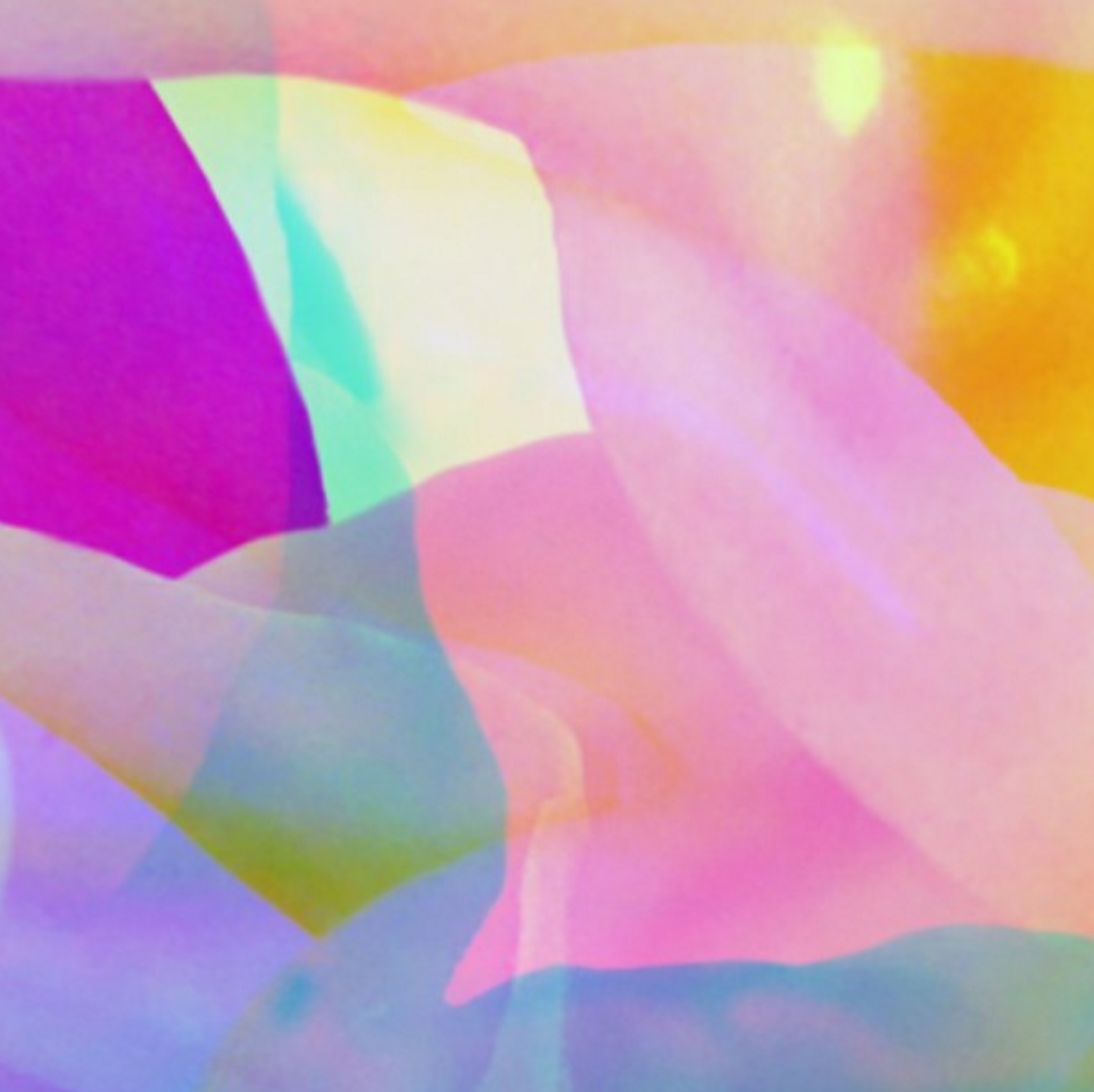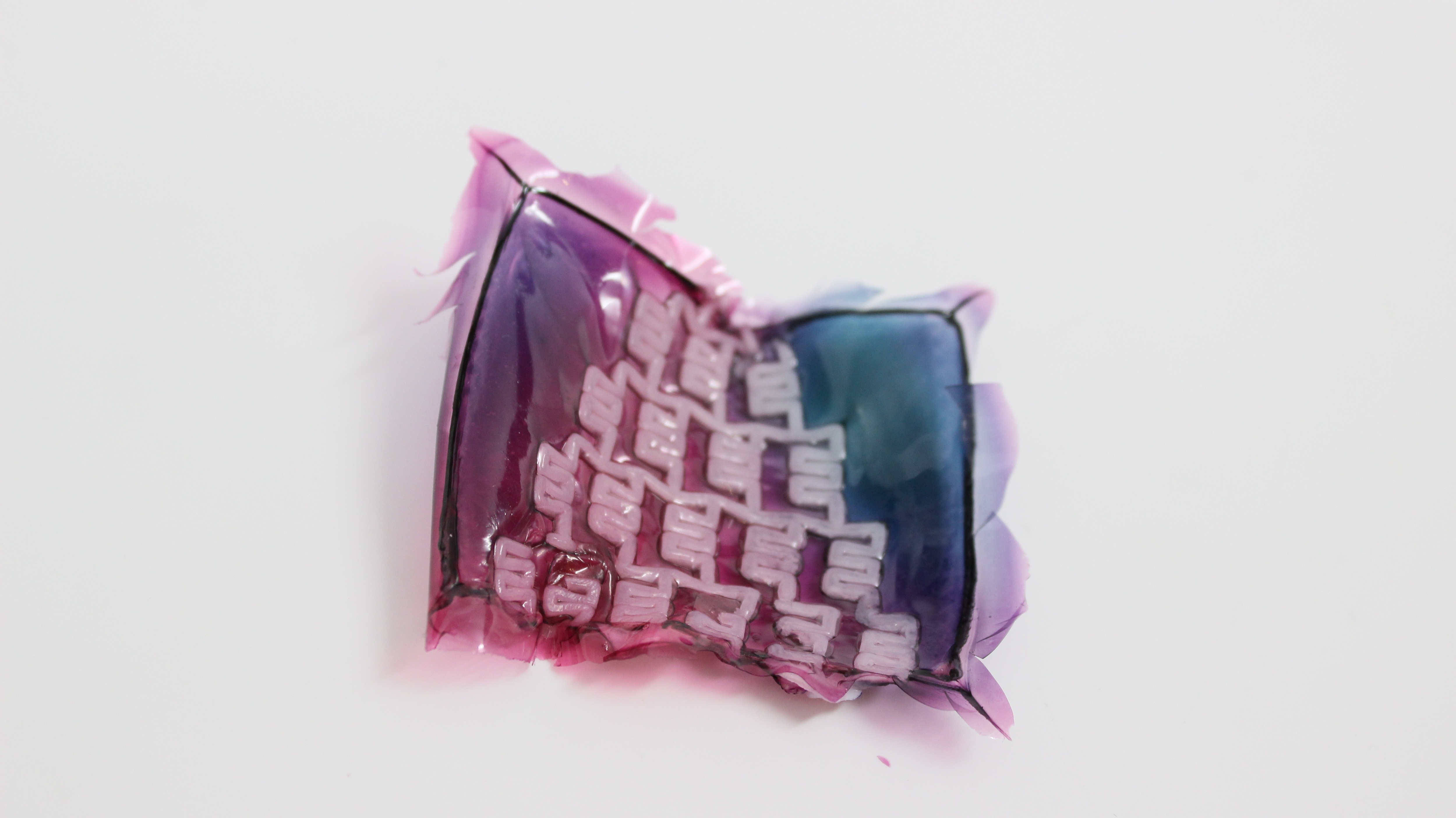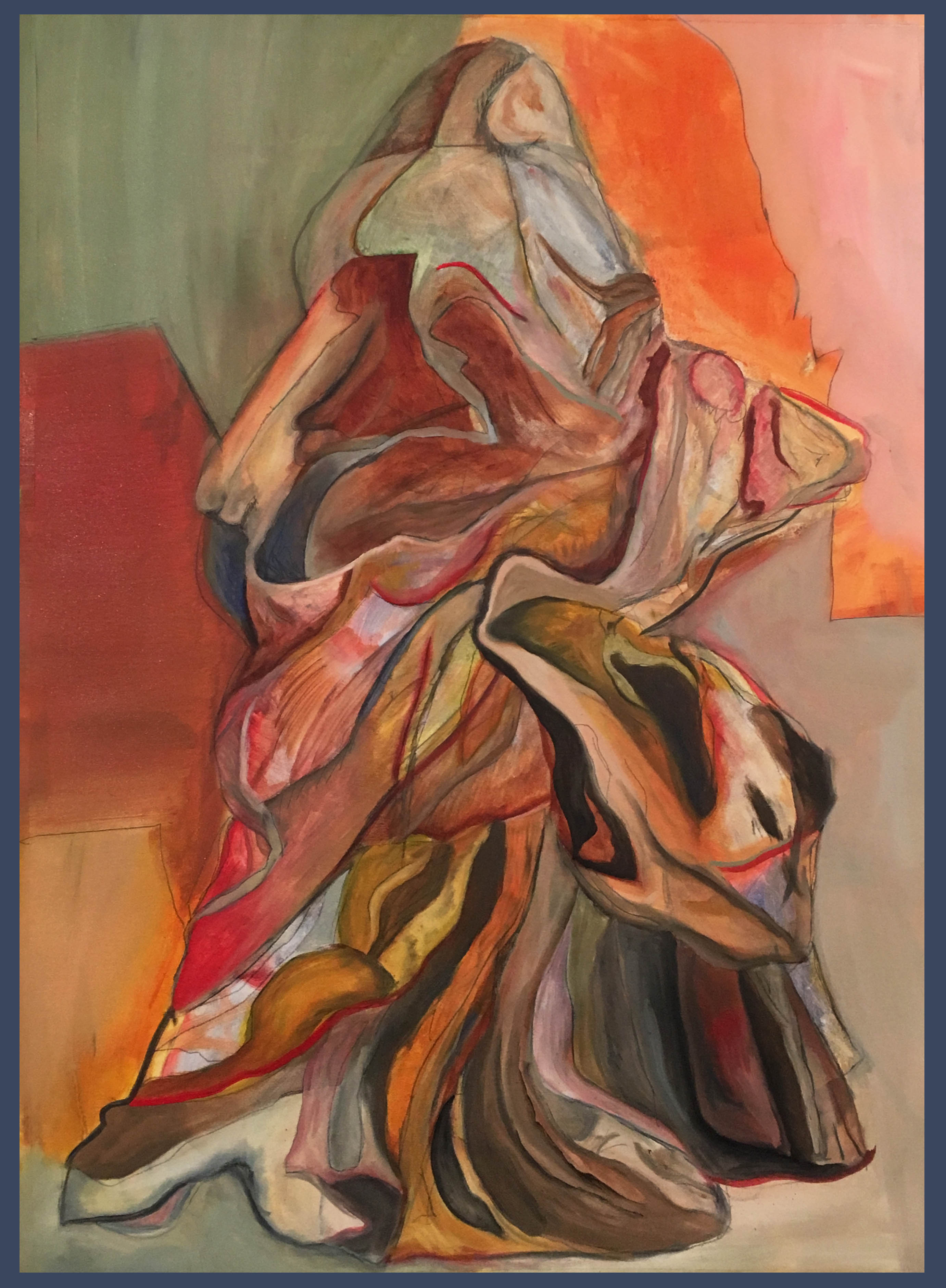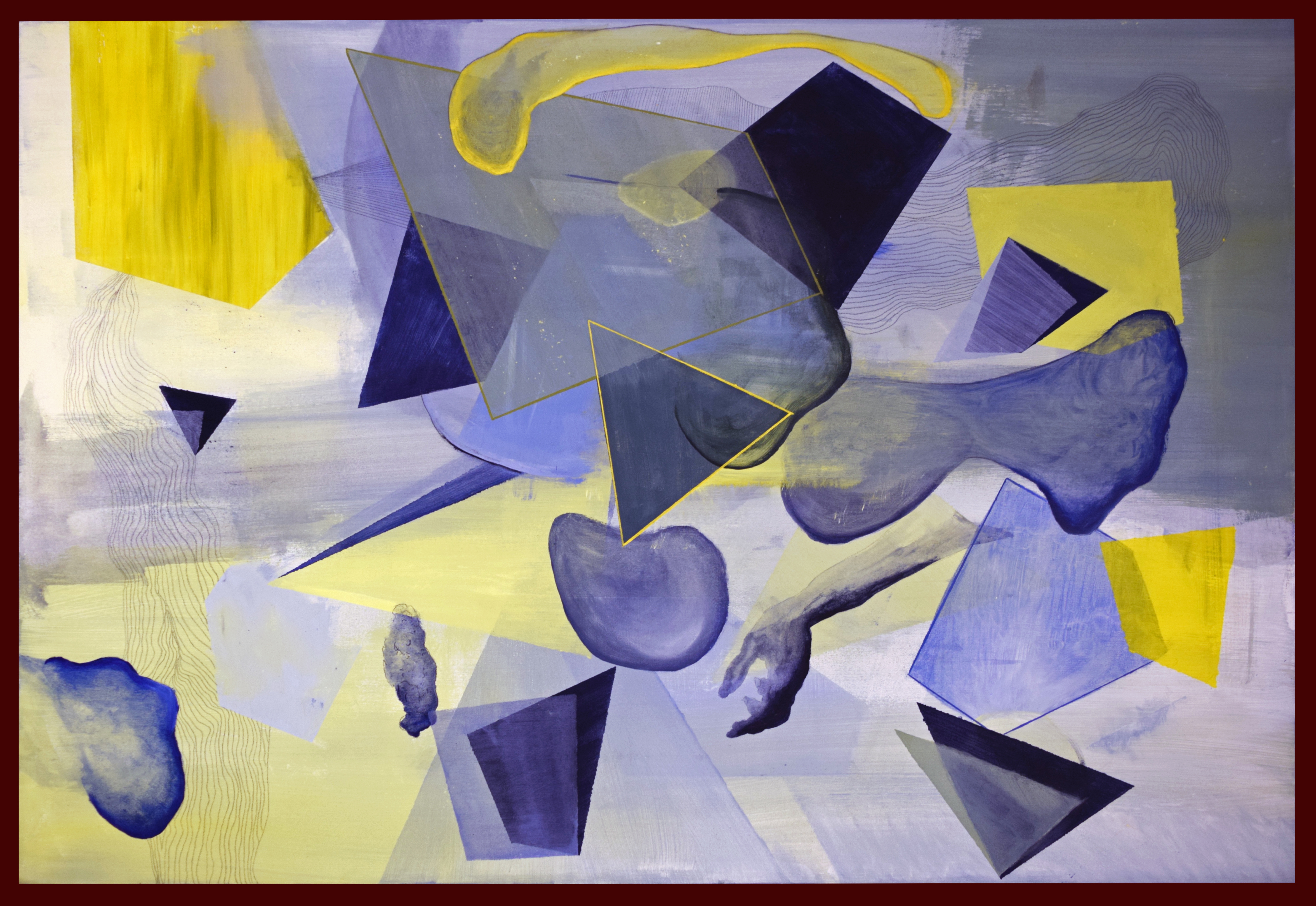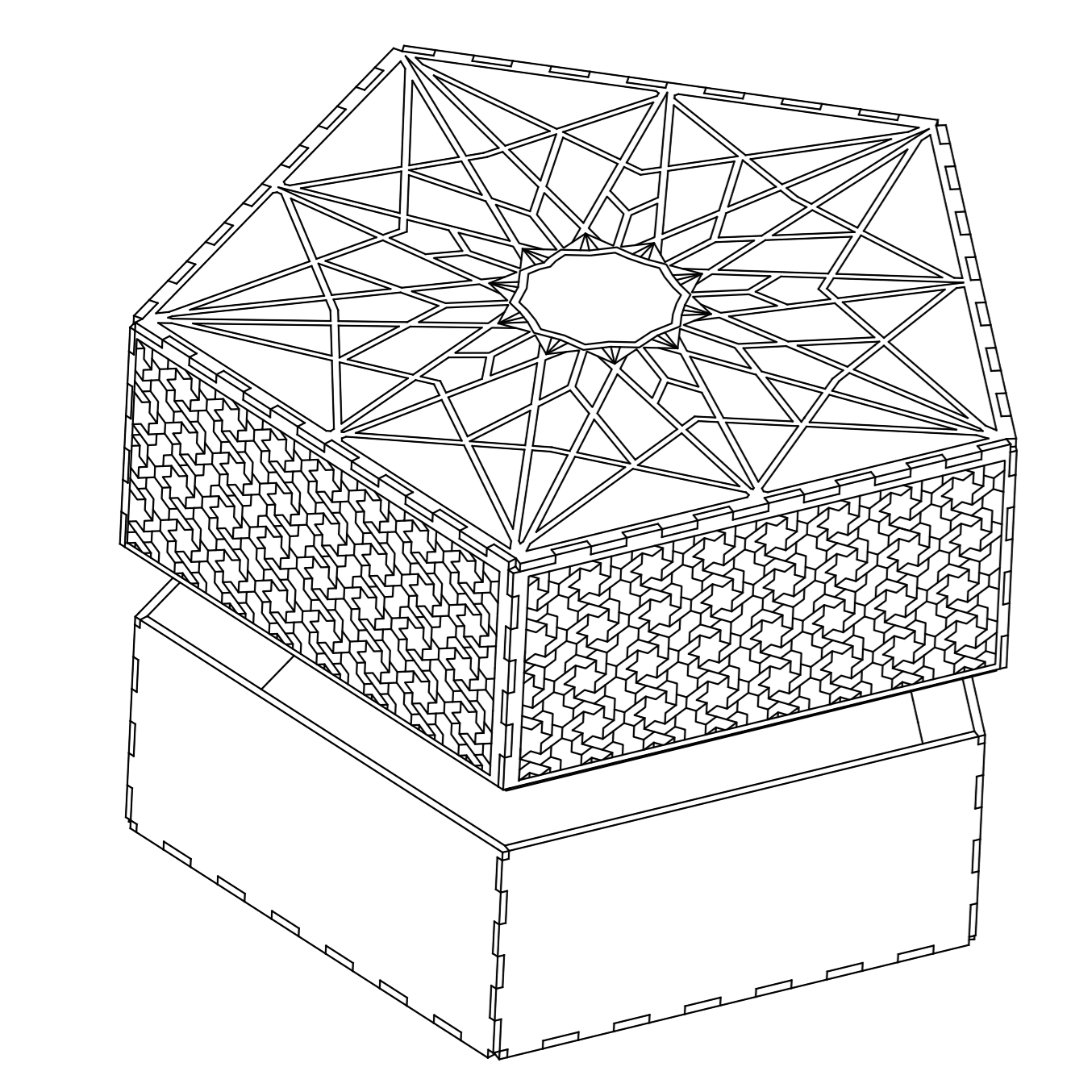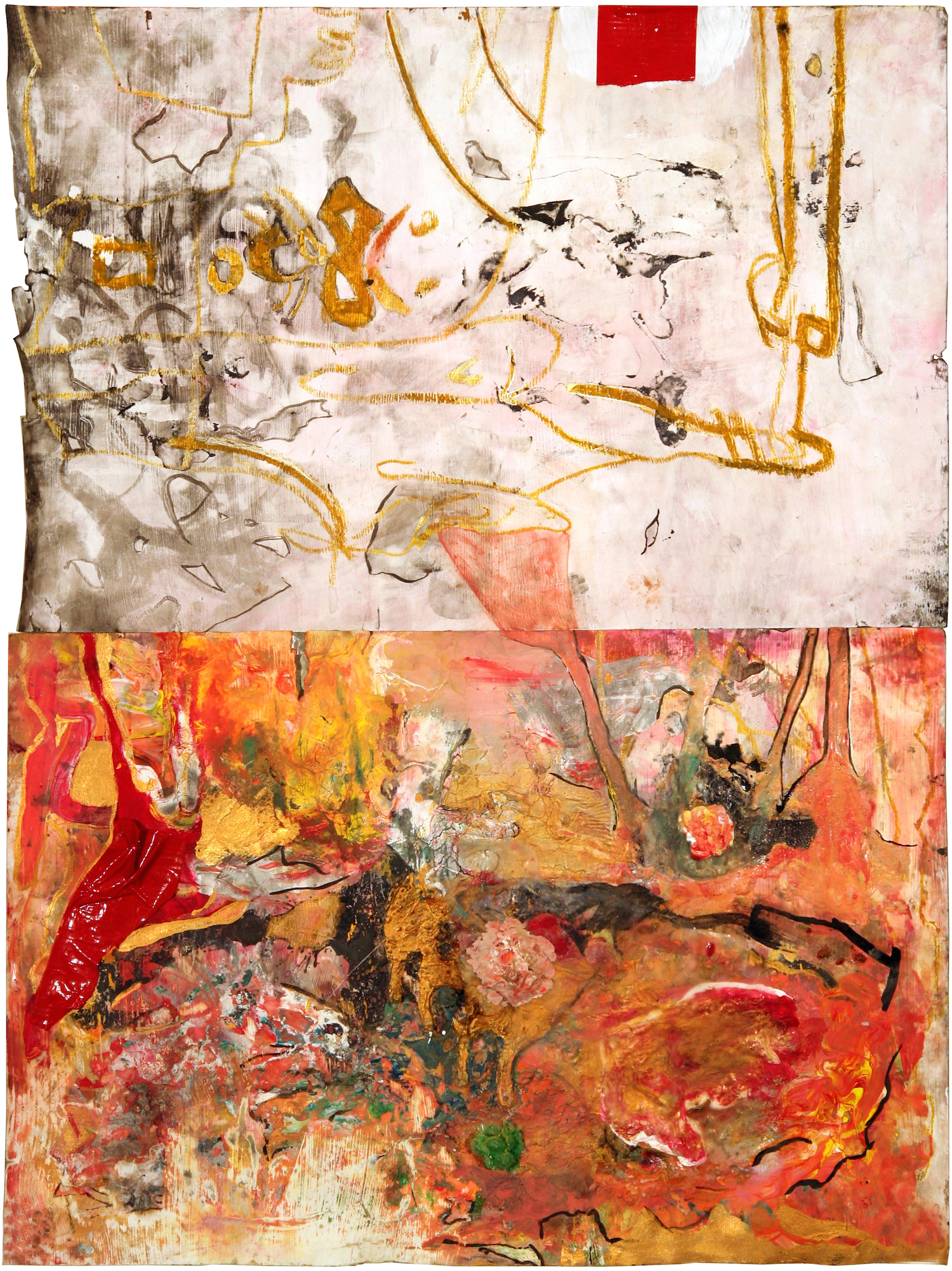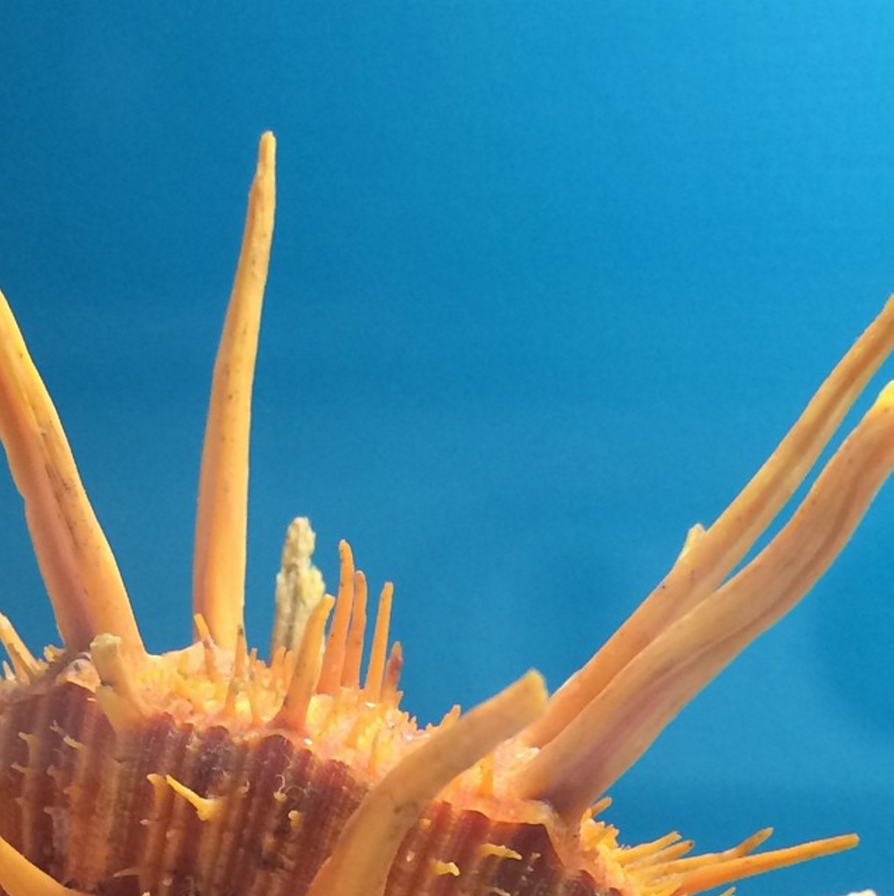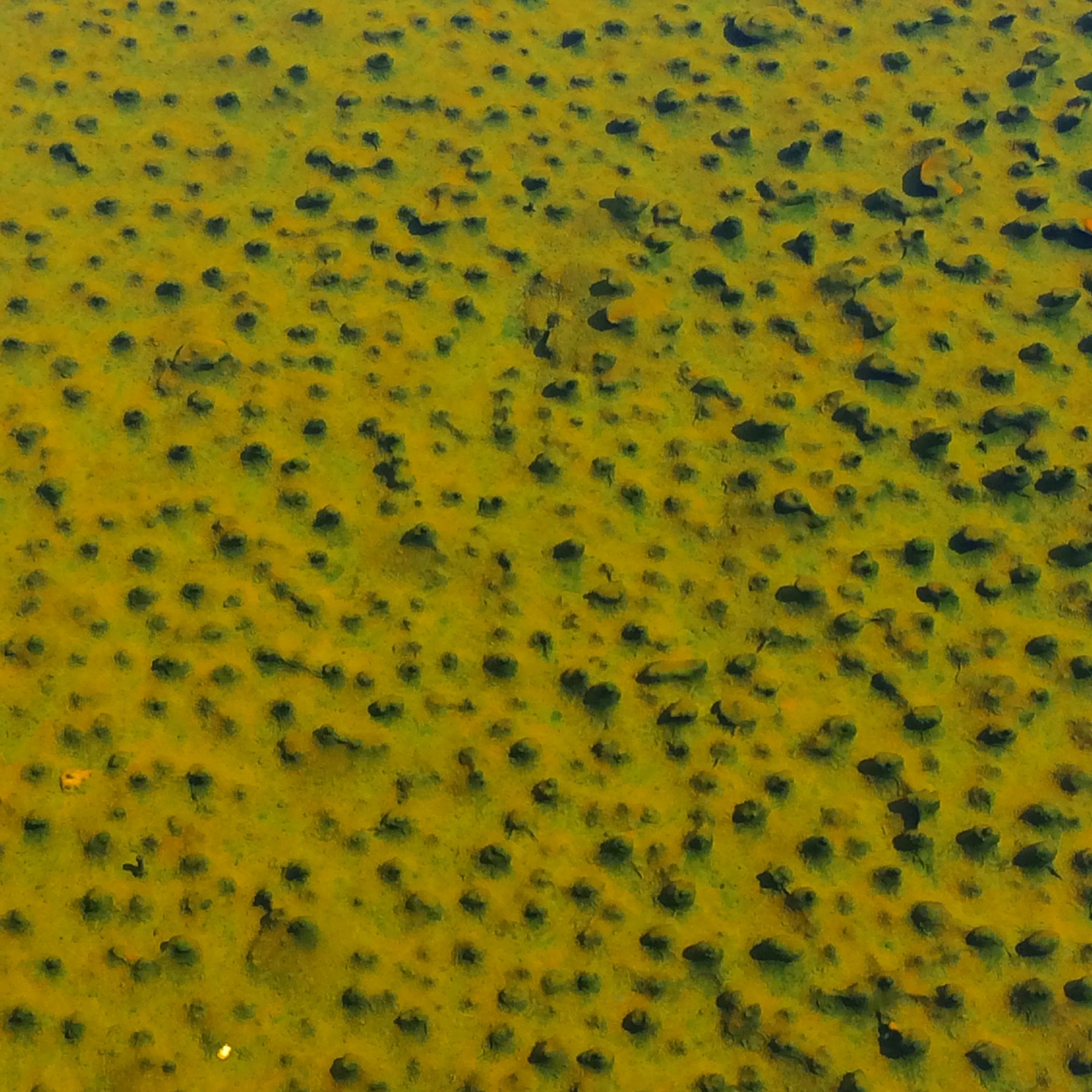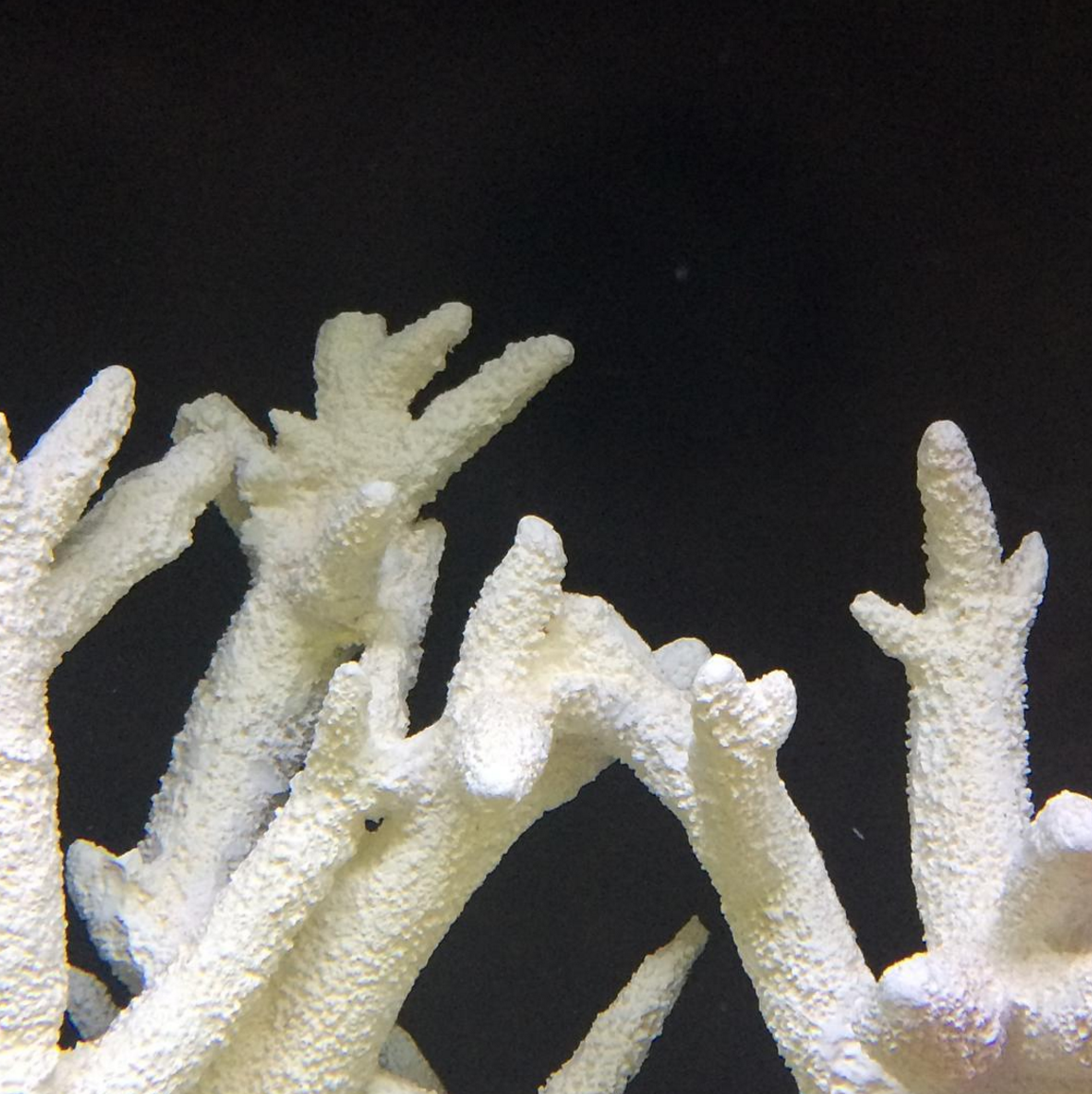We Want Starbucks
“We Want Starbucks” explores the parallels between corporatized, commercialized public space in America and the political propaganda and mythology of Cuba. When in Cuba, I was told by a Cuban woman that, “When people come to cuba, they say ‘oh, you’re so lucky you don’t have advertisements and billboards everywhere,’ and I respond and tell them, ‘No, you’re lucky you don’t have political propaganda everywhere. We want Starbucks to come and fill some of the space.”
Rather than accepting either one of these realities as the ideal condition, I imagine a future for Cuba that combines technological innovation with collectivity and environmental stewardship. Inspired by compressed air vehicles – early submarines, trains, and airplanes – of the mid-19th century, the project explores mechanisms and infrastructures that were proposed but not developed due to economic, political, and market hindrances.
Cuba historically has had an economy of sugar plantations and relied on petroleum imported from the Soviet Union. I designed a future vehicle for Cuba that runs on compressed air from fermentation, rather than imported gasoline. Used coffee grounds from Starbucks are fermented with sugar and yeast. The resulting carbon dioxide fills a balloon that generates a pressure differential to power a small vehicle.
Creating a transitory object evokes possibility for future infrastructures and systems. Perhaps homes could have compost systems in which the released gases are repurposed to power a car. Roads, and consequently schedules and lifestyles, could be built around collectivity and responsible resource consumption, rather than an individualistic understanding of convenience.
May 2017
Final Project for Studio Seminar in Art and Public Sphere (MIT)


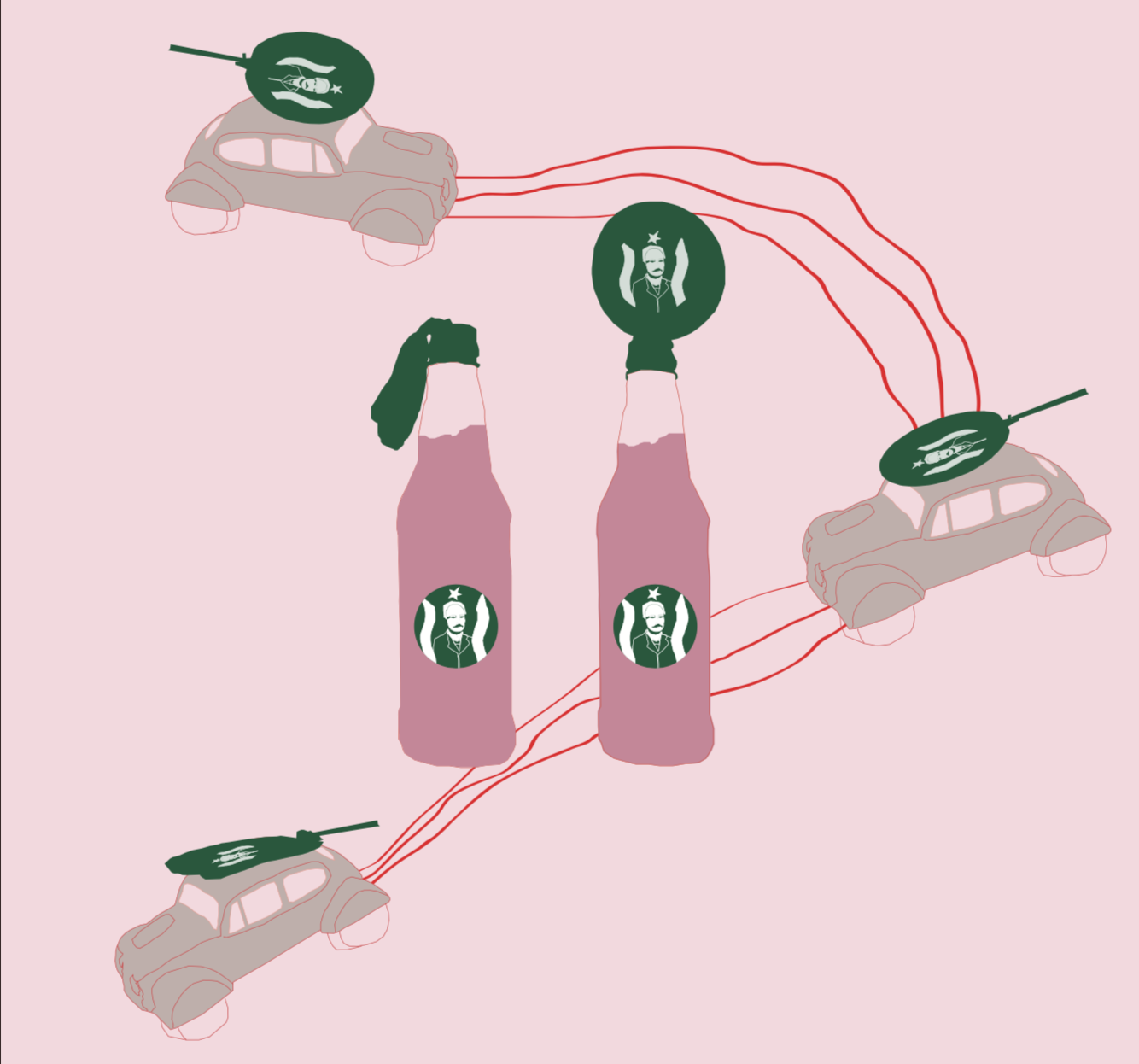


Re-design of Starbucks logo featuring Jose Marti
